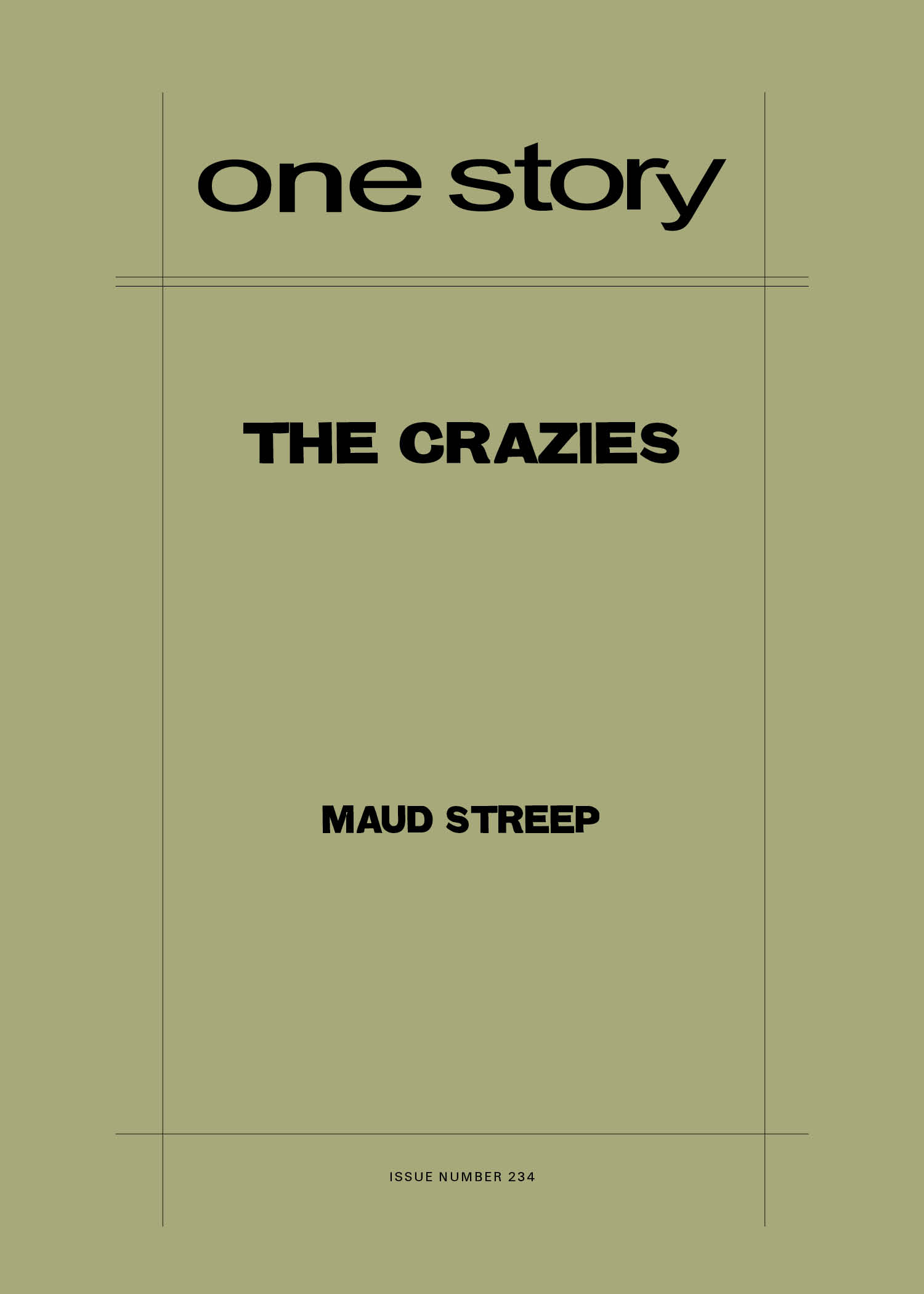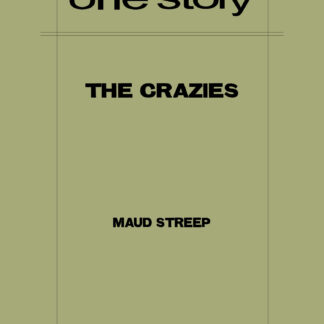
The Crazies
$2.50
40 in stock
Excerpt
I met Jake working at a ghost town in western Montana the summer I turned twenty-two. I had just graduated from Yale and was “doing something different.” Jake played a cowboy, and my best friend Liza and I played whores. We leaned over wooden balconies to holler at the tourists, our white cotton chemises pulled low over corset-hoisted boobs. Every day at noon and four, Jake broke up a gunfight in the street while Liza and I fanned our jaded faces. We bunked in a long-stay motel at the edge of town and spent our nights drinking in our rooms, on the roof, in the parking lot out back. I’d sit by Jake and feel the space between us go live.
One night we hit an emergency: Liza ran out of cigarettes. Jake had bummed too many the night before. I told him I would come along for the ride. We were still in our work clothes, so after I’d backed him up against the door of his truck, and after he’d helped me into its bed, it took some concentration to lose the chaps and stays. And then, naked behind the gas station in the light-stained August twilight, free from all that, I thought: I could wear this sweat forever.
Maud Streep
Maud Streep is from Nyack, New York, and lives in Brooklyn. She holds an MFA from the University of Montana. Her writing has been supported by scholarships and fellowships from the Bread Loaf Writers’ Conference, Lighthouse Works, and VCCA. She is a 2017 NYC Emerging Writers Fellow at the Center for Fiction. This is her first published story.
Will Allison on “The Crazies”
As many a cowboy ballad can tell you, the halo glow of new love never lasts. Sometimes it simmers down with age; sometimes it flames into something else; and sometimes it just flickers out. It’s one of those lessons we all learn sooner or later.
Even so, when I read “The Crazies” by Maud Streep, I couldn’t help but be charmed by the halo glow of its early pages. The narrator, a recent Yale grad, heads to Montana, takes a job at a Wild West tourist attraction, and falls in love with a cowboy named Jake. Their marriage is a happy whirlwind of cheap beer, sex, optimism, and simple, carefree living.
But halfway through the story, the couple’s happiness turns to anguish. At the risk of giving away too much: something terrible happens on an elk hunting trip in The Crazy Mountains, and the narrator and Jake may or may not be responsible. How each of them deals with this possibility will determine whether their love endures, or whether it flickers out.
“The Crazies” is wise about life and relationships in ways one would expect from a veteran storyteller. As it happens, though, this is Maud Streep’s first published story. We are very pleased to present One Story’s second debut of 2017, and we hope you are as crazy about “The Crazies” as we are.
Q&A by Will Allison
- WA: Where did the idea for this story come from?
- MS: A few things collided at once. I had recently moved to Missoula from New York and was hyperaware of a kind of myth of the West that certain East Coasters are prone to building and buying into (myself included). I mean both a sanitized myth of the Old West but also a more modern dive-bars-and-home-canning version too. And then fire was very much on my mind: my first fire season was a bad one, with apocalypse-red skies and large chunks of ash falling on our heads. On the drive out there from New York, I had stopped with my mother to see some family friends near Big Timber, and we heard that a few years earlier, they’d lost buildings and land and a significant collection of heirlooms and historical artifacts to a fire set by some negligent hunters. These friends were my family’s first connection to Montana and a cornerstone in the foundation of my own Western myth. So those elements were bumping around together in my brain.
- WA: What was the most challenging aspect of writing this story?
- MS: Figuring out where I wanted to leave it.
- WA: Halfway through the story, after the narrator goes on a hunting trip with her husband, Jake, the plot takes a harrowing, unexpected turn. How much of the plot did you know at the outset, and how much did you figure out along the way?
- MS: I knew the rough outlines of the plot from the time I started writing, and I knew I wanted to turn the story on its head midway through. From a formal point of view, that big shift was what interested me in writing the story. The details of the two characters’ lives took longer to accrete. From there it was a process of figuring out how much of that detail the story needed in order to run.
- WA: I love the rich but quiet symbolism in “The Crazies.” How conscious of symbol and metaphor are you as you’re writing a story?
- MS: Thank you! I can’t honestly say I’m thinking of either as I write. Whatever’s going on is happening subconsciously. But one of the things I love most in writing and reading fiction is the collaboration of the writer’s mind with the reader’s—who’s putting what into the story, who’s seeing what, all of that.
- WA: How long did it take you to complete this story?
- MS: About five years of writing and putting it away and taking it back out again.
- WA: During the editorial process, you were painstaking and unrushed with your revisions. (I make this observation as one slow writer to another.) Could you talk about your approach to revision?
- MS: I got alarmingly into jigsaw puzzles recently, as an approved writing break activity. At some point, I realized I was maybe performing some weird grand metaphor for the revision process using fragmented dozing cats. So, to honor those cats, here’s my bad metaphor. I’ll be puzzling along and all of a sudden hit a block. No matter how long I stare at the puzzle, one area won’t come together—I can’t rotate the pieces right in my mind. Or I’ll jam in some piece that looks like it fits a particular spot, but when it comes down to it, I know it’s just slightly too tight. But if I walk away and come back later instead of obsessing, suddenly I can put a whole swath of the puzzle together in five minutes. Until I hit the next block, of course. That’s how revision is for me—I can try and force it, but I need time away when the piece doesn’t fit.
- WA: We’re thrilled to be publishing your first story, Maud. When and how did you start writing fiction?
- MS: I started as a kid, which I know is a tedious old song. I detoured into filmmaking during college, and writing fiction became something private. I started to focus on it again in the first years out of school, when some close friends ran a writing group that was a real home for me.
- WA: What are you working on now?
- MS: More stories—a couple of brand new ones and then others in various stages of revision. And I’m in early days on a novel.
- WA: What is the best bit of advice about writing you have ever received?
- MS: Debra Magpie Earling once told me to loosen up and not be afraid of feeling—that feeling doesn’t equal sentimentality. And my undergraduate thesis advisor, Ross McElwee, taught me to see revision as something exciting. I guess his advice boiled down to, “What happens if you try it again?”
